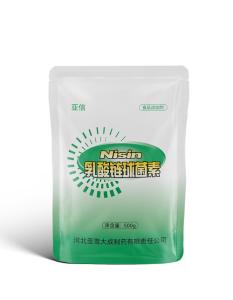

|
- Createtime: 2023-03-06
- Updatetime: 2023-03-10
Product Name: Neomycin Sulfate
Chemical Name: 2-Deoxy-4-O-(2,6-diamino-2,6-dideoxy-α-D-glucopyranosyl)-D-streptamine sulfate
Molecular Formula: C23H48N6O17S
CAS Number: 1405-10-3
Description:
Neomycin sulfate is a broad-spectrum antibiotic belonging to the aminoglycoside group. It exhibits strong antimicrobial activity against gram-negative bacteria such as Escherichia coli, Klebsiella, and Pseudomonas aeruginosa, as well as gram-positive bacteria such as Staphylococcus aureus and Streptococcus pyogenes. It is mainly used for the treatment of gastrointestinal infections caused by sensitive gram-negative bacteria.
Mode of Action:
Neomycin sulfate works by binding to the bacterial ribosome and inhibiting protein synthesis, leading to bacterial death. It is effective against a wide range of bacteria due to its ability to penetrate the outer membrane of gram-negative bacteria.
Compliance:
Neomycin sulfate is in compliance with the standards set forth by the Chinese Pharmacopoeia, EP, USP, and other relevant regulatory agencies.
Storage:
Store in a dry place, protected from light and sealed tightly.
Neomycin Sulfate Introduction
Neomycin Sulfate is an antibiotic that is used to treat a variety of bacterial infections. It is a broad-spectrum antibiotic that is effective against many different types of bacteria. Neomycin Sulfate is used primarily to treat infections of the gastrointestinal tract caused by gram-negative bacteria.
Chemically, Neomycin Sulfate is an aminoglycoside antibiotic that is derived from Streptomyces fradiae. It has the molecular formula C23H48N6O17S and a molecular weight of 712.72 g/mol. Neomycin Sulfate is a white to slightly yellowish, odorless, hygroscopic powder that is soluble in water and slightly soluble in alcohol.
Neomycin Sulfate works by binding to the bacterial ribosome and inhibiting the synthesis of bacterial proteins. This results in the death of the bacteria and the resolution of the infection. Neomycin Sulfate is effective against gram-negative bacteria such as Escherichia coli, Klebsiella pneumoniae, Salmonella typhi, and Pseudomonas aeruginosa.
Neomycin Sulfate is primarily used to treat gastrointestinal tract infections such as gastroenteritis, enterocolitis, and traveler's diarrhea. It is also used in combination with other antibiotics to treat infections caused by gram-negative bacteria, such as urinary tract infections and sepsis.
Neomycin Sulfate is available in various forms, including oral tablets, capsules, and suspensions, topical ointments and creams, and injectable solutions. The dosage and duration of treatment depend on the severity of the infection, the age and weight of the patient, and other medical conditions.
Neomycin Sulfate should be used with caution in patients with pre-existing kidney disease, as it can cause nephrotoxicity. It should also be used with caution in patients with pre-existing hearing loss or vestibular dysfunction, as it can cause ototoxicity. Neomycin Sulfate should not be used in patients with known hypersensitivity to aminoglycoside antibiotics.
The most common side effects of Neomycin Sulfate are gastrointestinal in nature and include nausea, vomiting, diarrhea, and abdominal pain. Other less common side effects include rash, itching, and fever. In rare cases, Neomycin Sulfate can cause serious side effects such as nephrotoxicity, ototoxicity, and neuromuscular blockade.
In conclusion, Neomycin Sulfate is an effective antibiotic that is used to treat a variety of bacterial infections, particularly those caused by gram-negative bacteria. It is available in various forms and should be used with caution in patients with pre-existing kidney disease or hearing loss. Neomycin Sulfate is generally well-tolerated, but patients should be monitored for potential side effects.
-
2023-03-13
How is Nisin produced?
Nisin is a naturally occurring antimicrobial peptide that is produced by certain strains of bacteria, particularly Lactococcus lactis. The process of nisin production involves the ...
MORE -
2023-03-14
How is ε-Polylysine hydrochloride produced?
ε-Polylysine hydrochloride, also known as ε-PL or Poly(ε-lysine), is a natural biopolymer composed of ε-lysine monomers. ε-PL is known for its antimicrobial properties and has...
MORE
- Tel:+8618231198596
- Whatsapp:18231198596
- Chat With Skype







